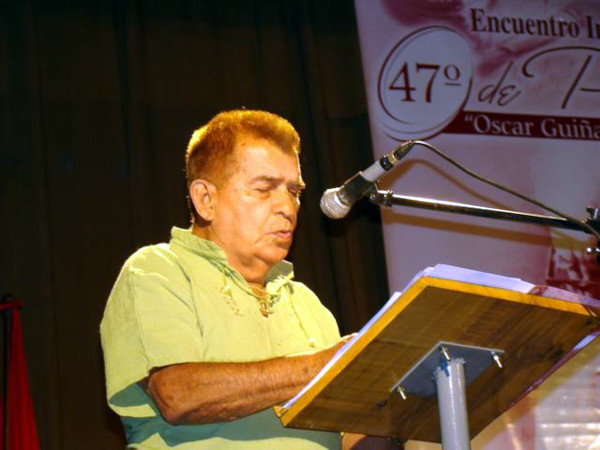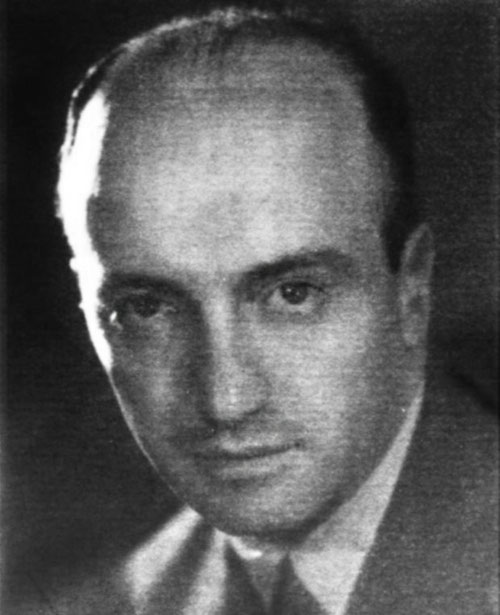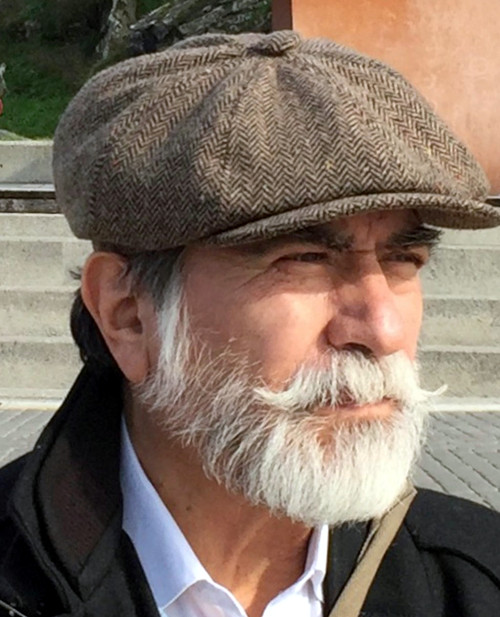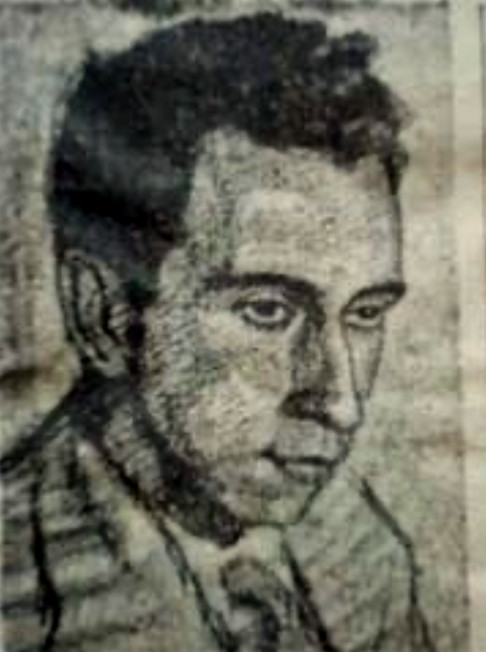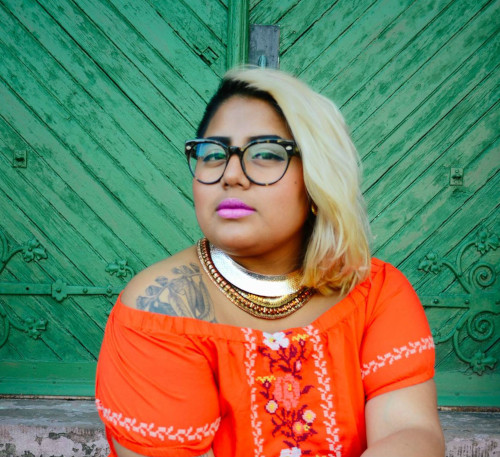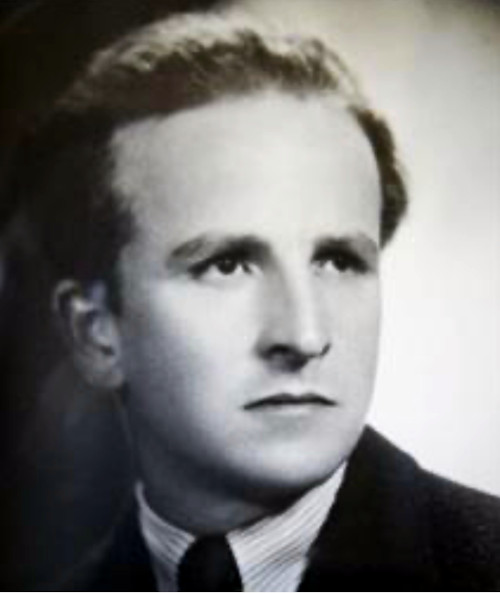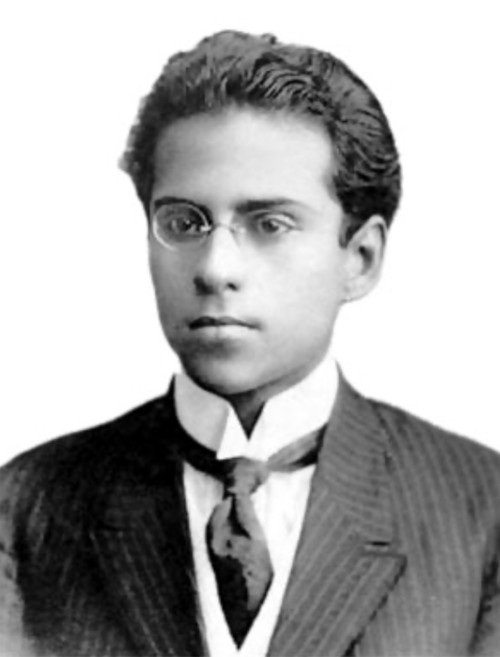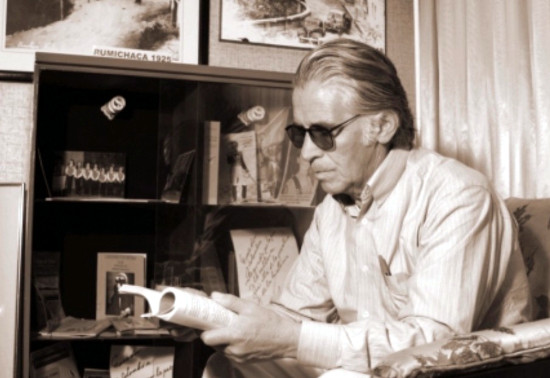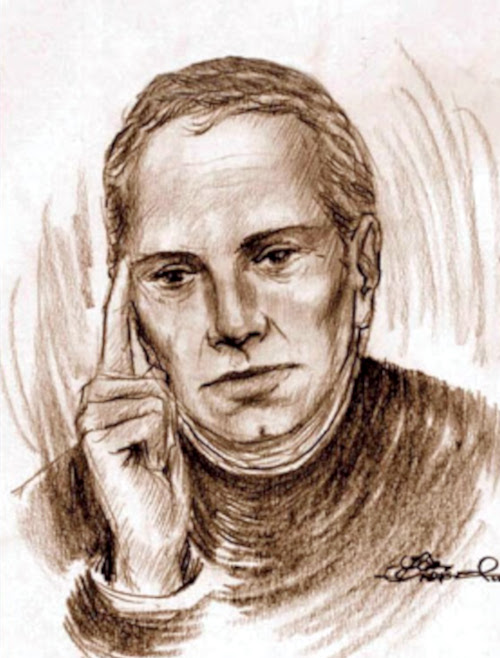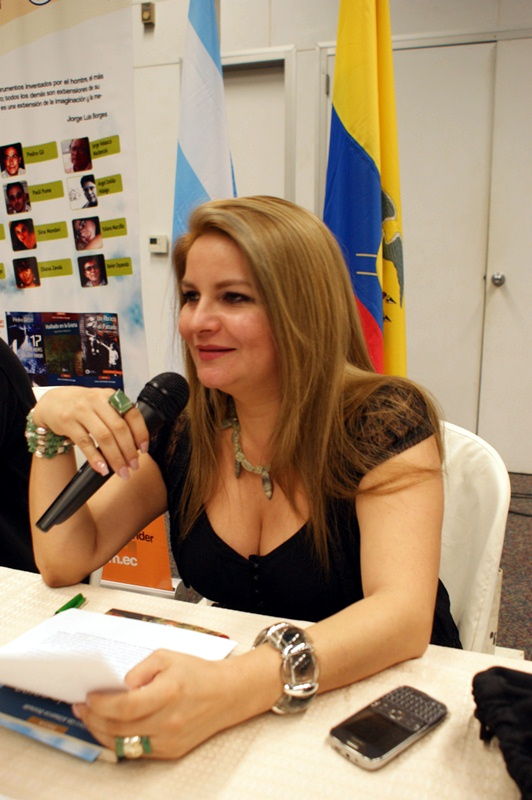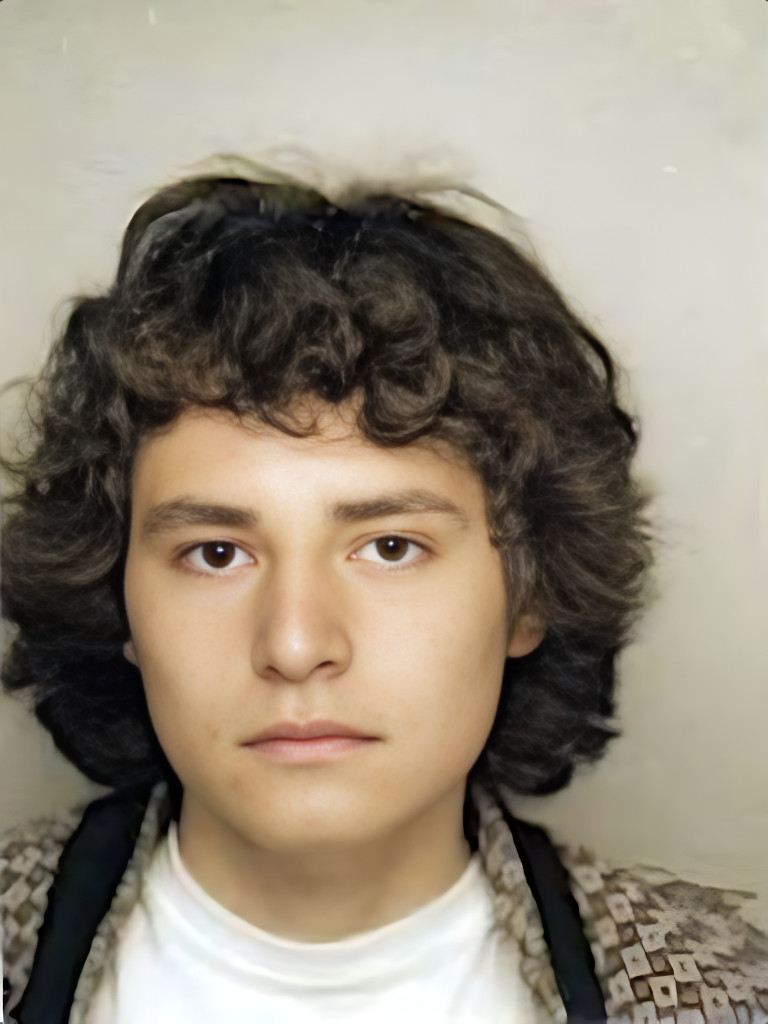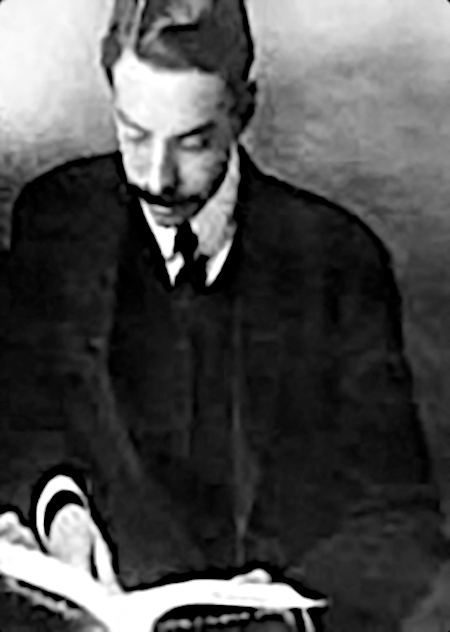Horacio Hidrovo Peñaherrera (Santa Ana, June 24, 1931 – June 9, 2012) was an Ecuadorian poet, writer, professor, cultural promoter, former mayor of Portoviejo, and president of the House of Ecuadorian Culture in Manabí. A professor of literature at the Universidad Laica Eloy Alfaro de Manabí, he authored over 20 works across genres, including poetry, novels, and essays, with some translated into English and Portuguese. In 2009, he was awarded the prestigious Eugenio Espejo Prize for Cultural Activities. He was the son of the celebrated poet Horacio Hidrovo Velásquez (1902-1962).
Continue reading “Horacio Hidrovo Peñaherrera”Posts
Gonzalo Escudero Moscoso
Gonzalo Escudero Moscoso (Quito, September 28, 1903 – Brussels, October 10, 1971) was an Ecuadorian poet, academic and diplomat. He earned a doctorate in jurisprudence at the Central University of Ecuador. He was a distinguished professor of international law at the University of Quito, Secretary of Education, Secretary of Congress, and Minister of Foreign Affairs. He served as Ecuador’s ambassador to Uruguay (1942-1845), Peru (1956), Argentina (1961), Colombia (1963), Brazil (1965), UNESCO (1960) and Belgium (1971). In 1964 he was appointed Chancellor of the Republic. At age 16 he published his first book of poems “Los Poemas del Aire,” which won the National Intercollegiate Poetry Contest of 1918. His second book of poems “Las Parábolas Olímpicas” won at the University Floral Games of 1922. He published over a dozen other books, including 2 books posthumously: “Réquiem por la Luz” and “Nocturno de Septiembre.”
Continue reading “Gonzalo Escudero Moscoso”Iván Oñate
Iván Oñate (Ambato, Ecuador, 1948) is an Ecuadorian poet and fiction writer. He has published 8 poetry books and 2 short story books, and his works have appeared in various anthologies.
Continue reading “Iván Oñate”Ignacio Lasso
Ignacio Lasso (Quito, 1911 – 1943) was an Ecuadorian poet who was the mentor and founder of the magazine of the poets of Elan, a group comprised of Ecuadorian poets born between 1905 and 1920. He worked with several magazines during his career.
Continue reading “Ignacio Lasso”Sonia Guiñansaca
Sonia Guiñansaca (Cuenca, 1989) is a migrant poet, cultural organizer and activist whose work aims for culture equality and social justice, focusing on migrant rights, climate change, LGBTQ+ rights, and gender discrimination. At the age of 5 Guiñansaca migrated to the United States to reunite with her parents in New York City.
Continue reading “Sonia Guiñansaca”Alfredo Gangotena
Alfredo Gangotena Fernandez Salvador (Guayaquil, April 19, 1904 – Quito, December 23, 1944) was an Ecuadorian poet who wrote in French and Spanish. In Paris in the 1920’s he befriended Jean Cocteau, Jules Supervielle, Henri Michaux and Max Jacob.
Continue reading “Alfredo Gangotena”Medardo Ángel Silva
Medardo Ángel Silva Rodas (Guayaquil, June 8, 1898 – Guayaquil, June 10, 1919) was an Ecuadorian poet, writer, and journalist, known as one of the most significant members of the Generación Decapitada (Decapitated Generation), a group of modernist poets in early 20th-century Ecuador. His work, heavily influenced by French symbolism and the modernist movement led by Rubén Darío, explored themes of love, melancholy, and death. Silva published his poetry in his collection El árbol del bien y del mal (1918) and gained national recognition with his poem “El alma en los labios,” later made famous as a song by Julio Jaramillo. His tragic death at 21, widely believed to be a suicide, remains shrouded in mystery, further enshrining his place in Ecuadorian literary history.
Continue reading “Medardo Ángel Silva”Vicente Amador Flor
Vicente Amador Flor Cedeño (Portoviejo, July 19, 1903 – December 3, 1975) was an Ecuadorian poet known for his poems about his native city Portoviejo. The central park of Portoviejo has borne his name since October 30, 1981, and many educational institutions in Ecuador bear his name. In 1983 a bust statue of Flor was placed in the central park of Portoviejo.
Continue reading “Vicente Amador Flor”Luis Enrique Fierro
Luis Enrique Fierro (Tulcán, Carchi Province, November 14, 1936) is an Ecuadorian physician, writer and poet. His literary portfolio includes poetry collections like “Baratillo de esperanza,” “Metástasis,” “Arrecife,” “De Muelles y Caminos,” and “Antología Poética.” In the medical field, Fierro served as the Provincial Director of Health from 1965 to 1972 and later became the director of the pediatrics department at the Luis Gabriel Dávila Hospital. His cultural contributions extended to leadership roles as well, where he served three terms as the president of the Carchi branch of the House of Ecuadorian Culture during the periods of 1983-1987, 1992-1997, and 2001-2005. Ecuador’s president honored Fierro with the Eugenio Espejo Award in Culture in 2005.
Continue reading “Luis Enrique Fierro”Humberto Fierro
Humberto Fierro Jarrín (Quito, June 17, 1890 – Quito, August 23, 1929) was an Ecuadorian poet of modernismo, a literary movement that took place primarily during the end of the nineteenth and early twentieth-century in the Spanish-speaking world. He was close friends with Arturo Borja, Ernesto Noboa, and other tormented poets of the early twentieth century who committed suicide and were thus dubbed the “Decapitated Generation.” This group was heavily influenced by Rubén Darío’s modernismo movement as well as 19th-century French romantic poetry. Fierro’s best known poems can be found in his poetry collections, “El laud en el valle,” published in 1919, and “La Velada Palatina,” published posthumously in 1949. He spent almost all of his working life as a clerk in a Public Ministry Office. He died at the age of 39 in 1929 from a mountain fall, which some believe was suicide.
Continue reading “Humberto Fierro”Jacinto de Evia
Jacinto de Evia (Guayaquil, circa 1629 – 17??) was a priest and poet from the Spanish colonial period in Guayaquil, in what is now Ecuador. He is considered the first erotic poet of Ecuadorian literature because of poems he wrote in his younger years which he published in a book entitled, “Ramillete de Varias Flores Poéticas“ (Spain, 1675). The book also contains poems by his mentor Antonio de Bastidas and Hernando Domínguez Camargo. Some year prior to 1650, he traveled to Quito to study at the seminary school of San Luis, of the Society of Jesus, where he became a pupil of the great poet Antonio de Bastidas.
Continue reading “Jacinto de Evia”Siomara España
Siomara España Muñoz (Paján, January 4, 1976) is an Ecuadorian poet, essayist, professor and literary critic. She has been the director of the literature branch of the Guayas chapter of the House of Ecuadorian Culture, a high school teacher, a literature professor at the University of Guayaquil, the director of the School of Literature in the Faculty of Philosophy of the University of Guayaquil, the director of Research and Postgraduate Studies at the University of the Arts, and a professor of literature at the University of the Arts.
Continue reading “Siomara España”Oswaldo Calisto Rivera
Oswaldo Calisto Rivera, known by his pen name Cachibache, often spelled Cachivache (Quito, September 22, 1979 – October 10, 2000) was an Ecuadorian poet and painter who died of suicide at the age of 21. In 2001 Cachibache’s only book of poems “Rojo encanto de la marmota” was published posthumously by the House of Ecuadorian Culture in Quito. He also completed a yet unpublished poetic trilogy which consists of: “La cachiva,” “Comible Sr. Lucas Alombrey” and “La falta de pantuflismo.” Cachibache’s poems have been included in several anthologies, such as Memorias del primer festival de poesía joven Hugo Mayo (2005), 13 poetas ecuatorianos nacidos en los 70 (2008), and Premonición a las puertas (2012).
Continue reading “Oswaldo Calisto Rivera”Arturo Borja
Arturo Borja Pérez (Quito, Ecuador, September 15, 1892 – Quito, Ecuador, November 13, 1912) was an Ecuadorian poet associated with the “Generación decapitada” (Decapitated Generation), a group of young poets known for their tragic early deaths. Borja was the first of the group to adopt Modernist styles, drawing influence from French Symbolist poets like Baudelaire and Verlaine, whom he studied while in Paris seeking medical treatment. His poetic output, though limited, includes twenty-eight poems compiled in the posthumous collection La flauta de ónix (1920). Known for themes of melancholy and existential reflection, his work has made a lasting impact on Ecuadorian literature, marking him as a key figure in early 20th-century Ecuadorian poetry.
Continue reading “Arturo Borja”The poets of Elan
The ELAN Group (grupo Elan) emerged as a vibrant literary movement in Cuenca, Ecuador, during the 1940s, representing the neosymbolism or lyrical vanguard movement. They marked a significant departure from previous styles of poetry, aiming to create an authentic and innovative form of Cuenca poetry. Comprised of writers, artists, poets, and journalists born between 1905 and 1920, ELAN shared a sense of unity in their cultural outlook. ELAN’s poetry, characterized by clarity and humanism, continues to exert influence on contemporary literary circles. Within this group, Efraín Jara Idrovo stands out as an exceptional figure known for his remarkable contributions. Their early works and subsequent contributions were documented in various publications, showcasing their dedication to the craft. In 1972, Antonio Lloret Bastidas paid tribute to the lasting impact of the ELAN Group through his publication “Motivos de la Poesía Cuencana” and further honored them with a dedicated volume in his “Antología de la Poesía Cuencana.” The ELAN Group played a pivotal role in shaping the literary landscape of Cuenca and left a lasting impact on the poetry of the region.
Continue reading “The poets of Elan”
